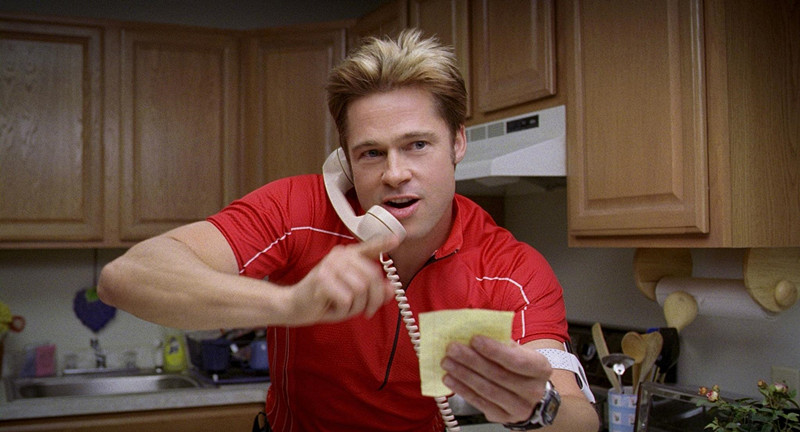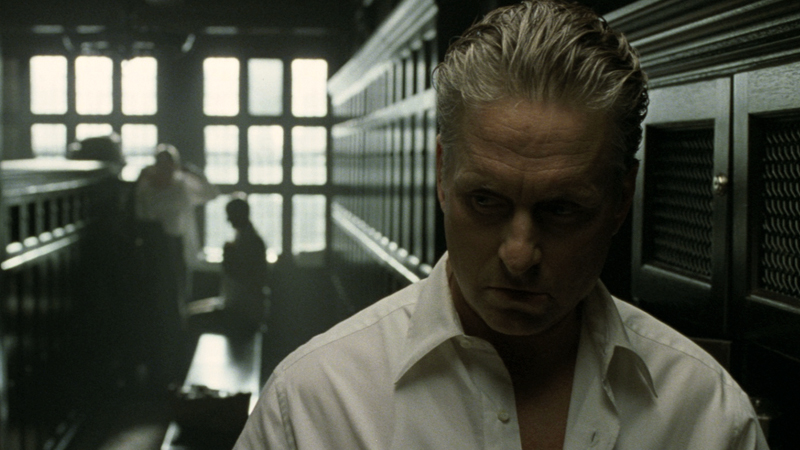
Maybe you are tired of the mainstream cinema bandwagon and aren’t inclined to spend your time watching a profound film that spans several hours. In that case, this list is tailor-made for you, where each entry encompasses several interesting traits and philosophies and the run times are modest.
These are genre-bending films that blend important and stimulating scenarios in their plots that grapple the audience’s attention throughout the run time and further after the film is finished. They are the brave and daring saplings of cinema that need an ovation.
1. Zardoz

“Zardoz”is associated with the stuff of legend. After all, it is most well known for having Sean Connery as the lead protagonist with the very recognizable image of him in a red tankini costume.
This film is full of oddities, eccentricities, and weird plot points. But apart from all these virtues, or vices as you believe them to be, this is one of the most prophetic films from the 1970s that critically commented on social, moral, and political issues, in the form of a satire that we are witnessing in this decade. Don’t mistake this film’s oddities as weaknesses; most of the time, these oddities are highly controlled and targeted toward the audience to create awkward humor.
After the failure to green-light the passion project “The Lord of the Rings,” “Deliverance” director John Boorman decided to make a fantasy world of his own, and “Zardoz” is the result of this decision.
Masquerading as a weird sci-fi film, “Zardoz” comments on the omnipresent social division of our world; the warmongering of religions; the power and loopholes of democracy; the fakeness inherent in an ideal form of a deity, and even predicted artificial intelligence in the form of the film’s “Tabernacle.”
It also alerted us to the problems of immortality, although this instrument has yet not seen the light of discovery. The fantastical world of “Vortex” divides the higher beings of immortality from fellow mortal brutals. A stone head deity named Zardoz maintains the stability in these two worlds by instructing its paid followers to kill the brutals in the name of religion, but problems soon arise in this ideal world.
If all of the aforementioned qualities don’t attract you, watch out for a young Charlotte Rampling as Consuella, Sean Connery’s Zed’s objector who ultimately falls for him in the end, and the great use of Beethoven’s seventh symphony in a very climactic finale.
2. Upstream Color

“Primer” was not for everyone. Yes, the talk is about Shane Carruth’s debut film, which polarised and perplexed audiences like none before. Tagged as one of the rare hard sci-fi films, ex-mathematician Carruth made “Primer” with all brain and logic, but took a different route in his arguably more accomplished follow-up film “Upstream Color.” While “Primer” needed dedication and intelligence from the audience to untangle its hidden magic, “Upstream Color” need a rarer trait to appreciate the film’s beauty: meditation.
“Upstream Color” is a hypnotic film filled with Tarkovskian images where Carruth uncovers his selected philosophies of life. It is very much a philosophical film that tries to analyze the logic behind psychological conditions such as fear, confusion, and more prominently, love. Submit to the films hypnosis, just like the protagonist of the film gets hypnotized by a thief and an anonymous sampler using infrasonic, and you will be rewarded.
Unknowingly, they are also affected in their lives by a parasite’s changing life cycle that describes our helpless state, which comes with the inability to fully comprehend the major factors that play in our life’s decisions. A very intimate yet transcending film, “Upstream Color” will overwhelm the viewer with its sheer beauty, ambition, and worldview.
3. The Game

“The Game” is probably David Fincher’s most unseen and unappreciated film, though not decidedly to film lovers. It is also one of his most polarising films, especially regarding the unexpected revelation at the climax. Steer clear of the following discussions surrounding this film if you haven’t yet managed to see it, as it is difficult to discuss it without delving into spoiler territory. But make sure to watch it as soon as possible, because it is a really interesting film.
Nicholas Van Orton is having difficulties in coping with life after being distanced from his brother and spouse. On his 48th birthday, he finds a surprise birthday gift from his brother: a voucher to enter a game developed by Consumer Recreation Services. He tries to enter the game, but after an initial suspicion he abandons the plan. But in doing so, he fell into a trap streamlined by another scammer of that same company, who introduced herself as a victim of that company. Nicholas soon finds himself penniless in an unknown country and only escapes after selling his gold watch.
When he confronts the truth that it was all a hoax to infiltrate him from the growing frustration of life, he tries to committ suicide by jumping off a roof, just like his father did on his 48th birthday. Nicholas then finds himself in a ballroom full of friends who embrace him into a new life.
The most common criticism of this film is that the finale is widely unrealistic, but it needs a real evaluation. This is no longer the ‘90s; we live in a world where conspiracy theories are not mere gimmicks, as many coveted operations have proved themselves to be true after investigations. A corporation like the one portrayed in “The Game” is not as uncommon in the age of nanotechnology, and in the most probable scenario, it exists in an underground fashion.
4. The Man from Earth

Science always says that possibilities are infinite; a day may even come when all the prevailing scientific truths could be abandoned in a single swipe. In that regard, “The Man from Earth,” adapted from a Jerome Bixby script written on his deathbed, may be regarded as one of the finest sci-fi films.
Except that “The Man from Earth” defies genre categorization. This film creates a plot around a hypothesis that protagonist John Oldman is an immortal, and this truth is tried and tested in the film’s run time to reveal a final truth.
John Oldman is a university professor who, on his departing day, invites all his close acquaintances to his home, and through random chatter, he accidentally reveals that he is a Cro-Magnan human. But all of his friends come from accomplished pillars of life who would not easily accept this as truth. The circle is made of biologists, archaeologists, anthropologists, historians, and art professors who one by one question and examine the truth through the hypothesis procedure.
When this uncomfortable truth creates chaos in the room, John admits it was a hoax to comfort his friends, but a later suggestion reveals that it was, in fact, a truth. “The Man from Earth” is a fantastic exploration into the possibility of the human life in the form of a chamber drama that warrants great fame, which unfortunately it never received.
5. The Skin I Live In

Can you name the secret ingredient that is responsible for the different sexual identities present in our society? Impossible, the answer states. Although there is a middle ground that is the same in all of the sexual identities, the dominant personality traits and associated feelings are so distinct that they differ from any reverse engineering. At the very least, biology has not progressed to that level to reciprocate and reproduce individual feelings in a new body.
Pedro Almodovar’s hero, the brilliant plastic surgeon Robert Ledgard, tries to do that and failed epically. After his wife’s accidental demise, their one and only daughter Norma grows mentally captive, as Robert’s life is circled around her. When Norma is raped in a frightful accident, Robert tracks down the boy and tries to change his sexual identity as a punishment.
When Norma commits suicides because of the trauma from her rape, Robert embraces the now changed young man or woman as his last hope, whom he modeled after his dead wife. After a while, Vera, who is changed from Vicente, submits to Robert’s love and passion, but the question lingers on her actual intention. Much like Hitchcock’s “Vertigo,” this film analyzes the themes of deception, obsession, and identity; it is also a classic in its own right.